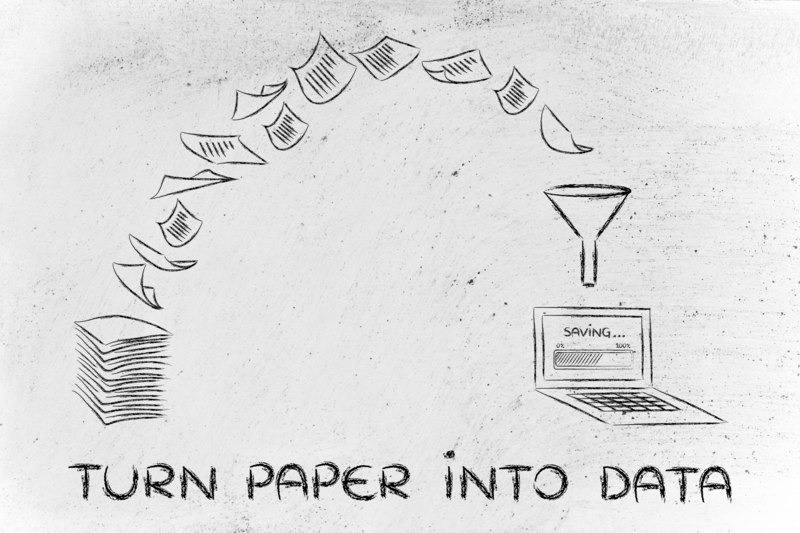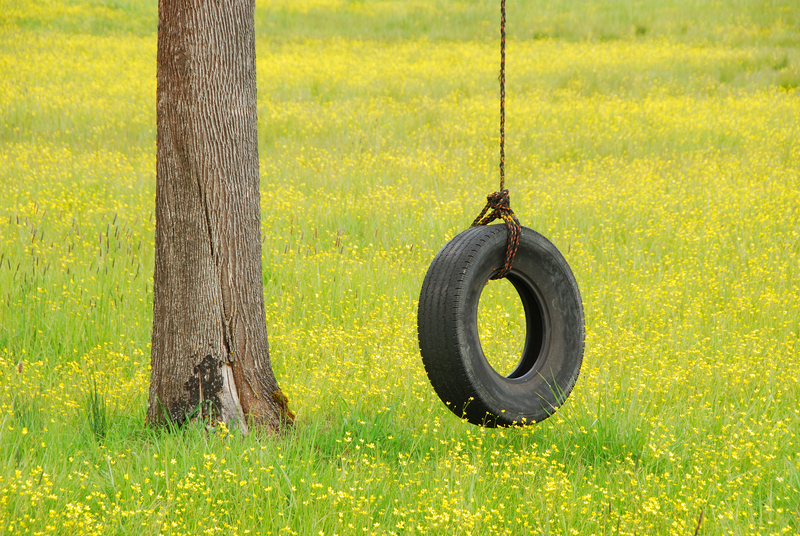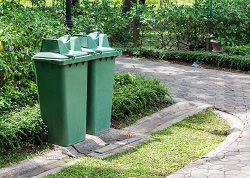Household Waste: Practical Steps for Reduction
Posted on 07/10/2025
Reducing household waste is a vital step toward fostering a sustainable environment and ensuring a cleaner, healthier planet for future generations. In today's fast-paced consumer culture, each home contributes significantly to the growing piles of municipal waste. But with conscious effort and practical strategies, you can dramatically reduce your household waste footprint. This comprehensive guide will walk you through actionable tips and informative insights for minimizing waste at home, making eco-friendly choices, and inspiring your community.
Understanding Household Waste
Before diving into steps to reduce household waste, it's crucial to understand what constitutes household waste. It typically includes:
- Organic waste (food scraps, yard trimmings)
- Packaging materials (plastic, cardboard, glass, metal)
- Paper and paperboard
- Household hazardous waste (cleaners, batteries, electronics)
- Textiles and clothing
Globally, household waste is a major contributor to landfills, generating greenhouse gases and contaminating soil and water. Reducing this waste isn't just environmentally responsible; it also helps save money and build stronger, more mindful communities.

Why Reducing Household Waste Matters
Minimizing residential waste has significant benefits:
- Less waste in landfills, decreasing methane emissions
- Reduced pollution of air, water, and soil
- Conservation of resources through recycling and reuse
- Lower household expenses from buying less and reusing more
- Setting a positive example for others in your community
Adopting habits that minimize domestic waste doesn't just impact your home; it contributes to a larger movement toward global sustainability.
Practical Steps to Reduce Household Waste
1. Practice Conscious Shopping
- Plan Meals: Make grocery lists and stick to them. This helps avoid impulse buys that often turn into waste.
- Buy in Bulk: Purchase products with less packaging where possible, such as grains, nuts, and cleaning supplies.
- Avoid Single-Use Items: Choose products that are reusable or have minimal packaging.
- Support Local: Shop at local farmers' markets to cut down on packaging and support local businesses.
2. Embrace Reuse and Repurposing
- Reusable Bags & Containers: Carry cloth shopping bags, and store food in glass jars or reusable containers instead of plastics.
- Repurpose Items: Old jars can serve as containers for leftovers; worn clothes can become cleaning rags.
- Buy Second-Hand: Explore thrift stores and online platforms to give items a second life.
- Repair, Don't Replace: Fix things like minor electronics, clothing, or furniture rather than discarding them.
3. Focus on Reducing Food Waste
- Store Food Properly: Use airtight containers and proper storage techniques to increase shelf life.
- Mind Portion Sizes: Serve appropriate portions to avoid leftovers that may go uneaten.
- Compost: Set up a compost bin for fruit and vegetable scraps, coffee grounds, and eggshells.
- Creative Recipes: Use up overripe produce in smoothies, soups, or baked goods.
4. Implement Effective Recycling Practices
- Know What to Recycle: Familiarize yourself with local recycling guidelines to avoid contamination.
- Clean and Sort: Rinse out containers, remove caps, and keep recyclables separated.
- Don't Wishcycle: Avoid placing non-recyclables in the bin, as this can disrupt recycling operations.
5. Choose Eco-Friendly Products
- Biodegradable and Compostable Options: Use products made from plant-based plastics, bamboo, or recycled materials.
- Concentrated and Refillable Solutions: Opt for concentrated cleaning solutions and refillable soap dispensers to cut down on packaging.
6. Properly Dispose of Hazardous Waste
- Take Back Programs: Use community drop-off points for batteries, electronics, and chemicals.
- Safe Storage: Store hazardous materials securely until you can dispose of them properly.
7. Reduce Paper Waste
- Go Digital: Switch to digital billing, banking, and subscriptions.
- Print Wisely: Print only when necessary and use both sides of the paper.
- Unsubscribe from Junk Mail: Opt out of physical junk mail and catalogs.
8. Establish a Zero Waste Home Routine
- Zero Waste Kits: Assemble reusable kits with water bottles, utensils, straws, and coffee cups.
- Involve the Family: Make waste reduction a family project with clear rules and fun challenges.
- Educational Labeling: Label bins and drawers to encourage correct sorting and recycling.
Common Household Waste Myths Debunked
- Myth: Recycling solves all waste problems.
- Fact: While recycling is important, reducing and reusing take precedence. Many materials are not recyclable or end up being downcycled.
- Myth: Composting is only for people with large gardens.
- Fact: Indoor composting solutions exist, such as worm bins or bokashi buckets, suitable even for apartment dwellers.
- Myth: Eco-friendly products are expensive.
- Fact: While initial costs may be higher, reusable and durable products save money over time compared to repeat purchases of single-use items.
Long-Term Benefits of Reducing Residential Waste
- Healthier Home Environment: Less clutter and fewer harsh chemicals create a safer, cleaner space.
- Financial Savings: Lower utility bills and less spending on disposable products.
- Community Impact: Sets a positive example, encouraging others to adopt similar practices and enabling local waste reduction initiatives.
- Resource Conservation: Stretch the lifespan of Earth's finite resources for future generations.
Involving the Whole Family in Waste Reduction
Making household waste reduction a group effort increases the likelihood of lasting change. Here's how to get everyone on board:
- Educate Kids: Teach children about recycling and let them lead simple sorting tasks.
- Shared Responsibility: Assign specific roles, such as emptying the compost or collecting recyclables.
- Reward Progress: Celebrate milestones, like achieving a week with no food waste.
- Fun Challenges: Host competitions to see who can come up with the most ingenious way to repurpose household items.
The Role of Technology in Reducing Household Waste
Modern technologies offer innovative ways to reduce domestic waste:
- Smart Appliances: Refrigerators and ovens can help track food shelf life, reducing spoilage.
- Apps for Sustainability: Apps like Olio and Too Good To Go connect users with excess food locally.
- Online Learning Platforms: Access courses and webinars on composting, recycling, or DIY repairs.
Joining the Community: Collective Action for Less Household Waste
While personal efforts make a big impact, joining forces amplifies the results. Consider these collective strategies:
- Neighborhood Composting: Create or join a local composting program for organic waste.
- Share Tools and Equipment: Borrow garden tools, ladders, or party supplies instead of purchasing new items.
- Organize Clean-Up Events: Initiate community clean-up days to inspire widespread commitment to waste reduction.

How to Measure Your Progress in Reducing Waste
Tracking and celebrating progress helps build motivation. Here's how to monitor your household's achievements:
- Conduct a Waste Audit: Sort your household waste for a week to identify key areas for improvement.
- Keep a Journal: Record weekly progress, ideas, and goals.
- Set Monthly Challenges: For example, aim to cut your plastic usage in half or reduce food waste by 25%.
- Weigh Your Trash: Track the amount of garbage going into your bin and strive to reduce it each month.
Conclusion: Towards a Low-Waste Lifestyle
Reducing household waste is a journey--not a destination. By adopting practical steps at home, each of us can contribute to a greener, healthier world. Whether you're meal planning, composting, repairing, or leading a community clean-up, your choices matter.
Start small and build on your successes: swap one disposable item for a reusable one, educate your family, and inspire your neighbors. Together, we can make a measurable difference in minimizing domestic waste, conserving precious resources, and protecting the planet for generations to come.
For more ideas and in-depth guides, continue to explore resources on reducing household waste and share your experiences to motivate others. Every action, big or small, brings us closer to a zero-waste future.

 020 3859 5580
020 3859 5580 020 3859 5580
020 3859 5580





 House Clearance
House Clearance Rubbish Collection
Rubbish Collection House clearance in London has never been easier, as Junk Removal Services can take care of your every need. From individual house junk...
House clearance in London has never been easier, as Junk Removal Services can take care of your every need. From individual house junk... With Junk Removal Services you can be confident that you’ll receive the most professional and affordable rubbish collection service within the London...
With Junk Removal Services you can be confident that you’ll receive the most professional and affordable rubbish collection service within the London...





